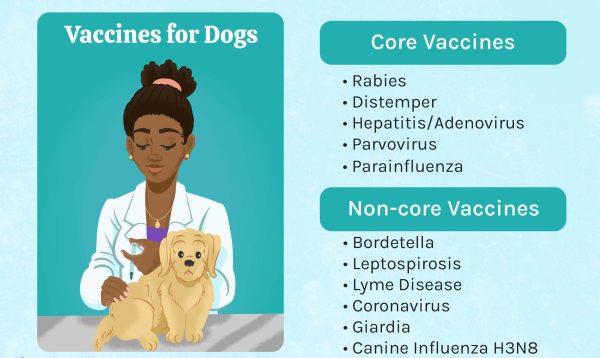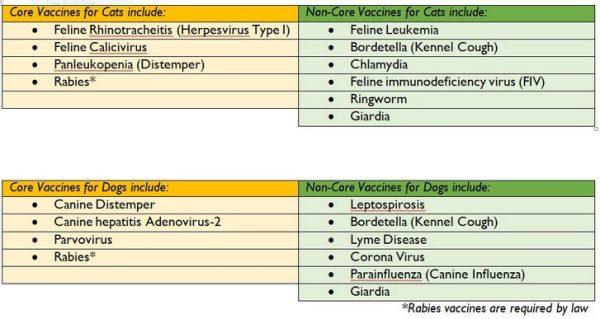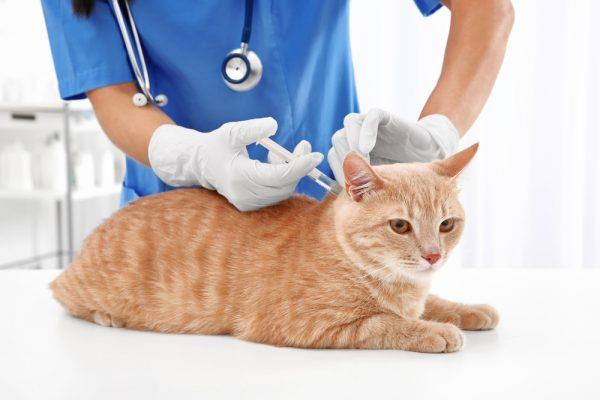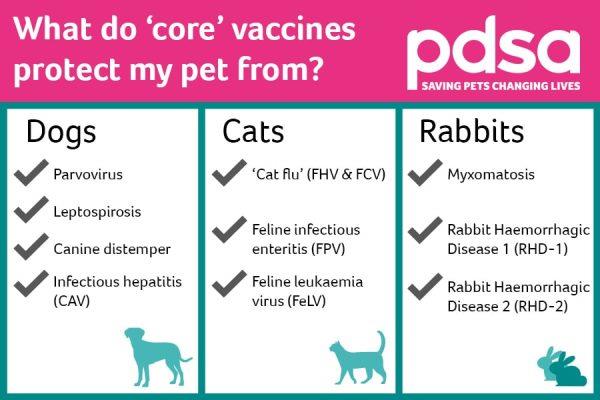Introduction to Pet Vaccinations
Vaccinations play a pivotal role in safeguarding your pets from a myriad of potentially fatal diseases. As preventative measures, they stimulate the immune system to recognise and combat disease-causing organisms.Vaccinations are essential for the health and longevity of your pets, especially in their early life stages.

The Importance of Vaccines for Pets
Vaccinations essentially provide a protective shield for your pets. They safeguard against diseases like rabies, distemper, and parvovirus. They not only protect your pet but also help to prevent the spread of these diseases among other animals and, in some cases, humans. Vaccinating your pets is the most effective way to prevent diseases transmission. Thus, vaccinations are integral to maintaining a healthy pet population.
Understanding the Role of Vaccines
Vaccines function as training agents for our body’s immune system. They introduce a harmless version of a disease to our bodies, usually in the form of inactivated or weakened viruses or bacteria, or pieces of the disease-causing organisms. This activation stimulates our immune system to produce a response, including the production of specific antibodies. When we’re exposed to the real disease after vaccination, our immune system is ready to fight it off much more effectively.
The Preventative Power of Vaccines
Vaccines play a crucial role in preventing diseases. They not only protect individuals who have been vaccinated, but also contribute to ‘herd immunity’, benefiting society at large. This is particularly essential for protecting those who cannot be vaccinated, such as individuals with certain health conditions.
Core vs Non-Core Vaccines for Pets
Like humans, pets also require vaccines. However, pet vaccinations are separated into ‘core’ and ‘non-core’ categories. Core vaccines are those recommended for every pet, protecting against severe, widespread or highly infectious diseases. Non-core vaccines, on the other hand, are administered based on a pet’s lifestyle and risk factors, such as exposure to specific diseases in their environment or during travel.

Why Vaccinations are Crucial for Pets
As pet owners, we strive to provide the best care for our furry friends. A paramount part of this care involves vaccinations. There are three primary reasons for vaccinating pets –
- Prevention of Fatal Diseases: Vaccinations are a quintessential shield against a host of deadly diseases. An unvaccinated pet is susceptible to life-threatening illnesses such as Parvovirus in dogs and Feline Leukaemia in cats.
- Contribution to the Overall Health and Longevity of Pets: Regular vaccinations don’t just protect against specific diseases; they also boost the pet’s overall immune system and enhance their lifespan.
- Prevention of the Spread of Diseases: Some diseases can be zoonotic, meaning they can spread from animals to humans. Vaccinating pets thus also protects the human family members.
By vaccinating our pets, we’re not just contributing to their health but also ensuring our own safety and the wellbeing of our community. It’s a small act with profound implications.
Common Diseases Prevented by Pet Vaccinations
Vaccinations form a crucial part of preventative pet healthcare, helping to safeguard them against a range of debilitating and potentially fatal diseases.
Consider Rabies, a deadly virus transmitted through the bite of an infected animal. Symptoms include behavioural changes, paralysis, and ultimately, death. Vaccination is the single most effective way to prevent this.
Similarly, Parvovirus and Canine Distemper are highly contagious viral diseases. Parvovirus causes severe gastrointestinal problems whereas Distemper affects the respiratory, gastrointestinal, and nervous systems. Both can be fatal, but are preventable through vaccination.
For cats, Feline Leukemia is a serious concern. It weakens the immune system, making them more susceptible to other infections. Vaccinating your cat can greatly reduce the risk.

In conclusion, pet vaccinations are vital tools in preventing common diseases. They contribute significantly to your pet’s overall health and longevity, making them an integral part of responsible pet care.
The Vaccination Process for Pets
The vaccination process for pets is a crucial part of pet care. Initial vaccinations for puppies and kittens usually start at around 6-8 weeks, with booster shots given every 3-4 weeks until they are 16 weeks old. After this, pets typically require annual vaccinations. However, the frequency can vary depending on the pet’s health, lifestyle, and the specific vaccine.
Vaccination appointments involve a health check-up, followed by the administration of the vaccine, usually through an injection. It’s a relatively quick process, but it’s important to monitor your pet afterwards for any potential side effects.
Side effects from vaccinations are generally mild and short-lived. They may include lethargy, slight fever, or reduced appetite. In rare cases, pets may have allergic reactions. Contact your vet immediately if you notice any severe or prolonged symptoms.
Legal Obligations and Vaccinations: A Guide for Pet Owners
The responsibility of pet ownership extends beyond daily walks and belly rubs. In Australia, specific legal requirements exist that mandate vaccinations for pets. These vaccinations are crucial for safeguarding your furry friends from life-threatening conditions such as Parvovirus, Canine Cough, and Feline Leukaemia.
Consequences of Non-Compliance
Failure to adhere to these legal obligations has serious implications. Not only does it increase the risk of your pet contracting and spreading deadly diseases, it can also lead to hefty penalties or legal action. Non-compliance may result in fines or even imprisonment, depending on the severity of the neglect.
Remember, your pet’s health is in your hands. Keeping up-to-date with vaccines is not just law, it’s a fundamental part of animal welfare.
Controversies and Misconceptions Surrounding Pet Vaccinations
Despite the overwhelming scientific evidence supporting the importance of pet vaccinations, a number of controversies and misconceptions persist. A common myth is that vaccines can cause autism in pets, a fear largely stemming from a now-debunked study linking childhood vaccines to autism. It’s crucial to understand that no credible research has ever supported this claim in animals.

Another frequent misunderstanding is the notion that pet vaccinations are a money-making ploy by vets. In reality, vaccines are a preventative measure, safeguarding not only individual pets but also the wider pet population from serious diseases.
Undoubtedly, vaccines can cause side effects, but severe reactions are extremely rare. The benefits greatly outweigh any potential risks. It’s time to put these misconceptions to rest and rely on science to guide our pet care decisions.
[Recommendation: Add a chart or infographic that visually represents the risk-to-benefit ratio of pet vaccinations.]
Conclusion: The Lifesaving Importance of Vaccinating Pets
When it comes to preserving the health and longevity of our cherished pets, vaccinations play an invaluable role. Regular vaccinations offer a strong defence against a variety of potentially fatal diseases, such as rabies, distemper and parvovirus, safeguarding not only the well-being of our pets, but also preventing the spread of zoonotic diseases.

As responsible pet owners, it’s crucial we prioritise these vaccinations. They’re not just a box to tick; they’re a lifeline for our pets. Regular vet visits are equally important, enabling early detection of any health issues. A holistic approach to pet healthcare ensures we can offer our pets the best chance at a long, happy life.
In conclusion, vaccinating our pets is a small act with a vast impact. It’s a lifesaving necessity that underpins the entire ethos of responsible pet ownership.


